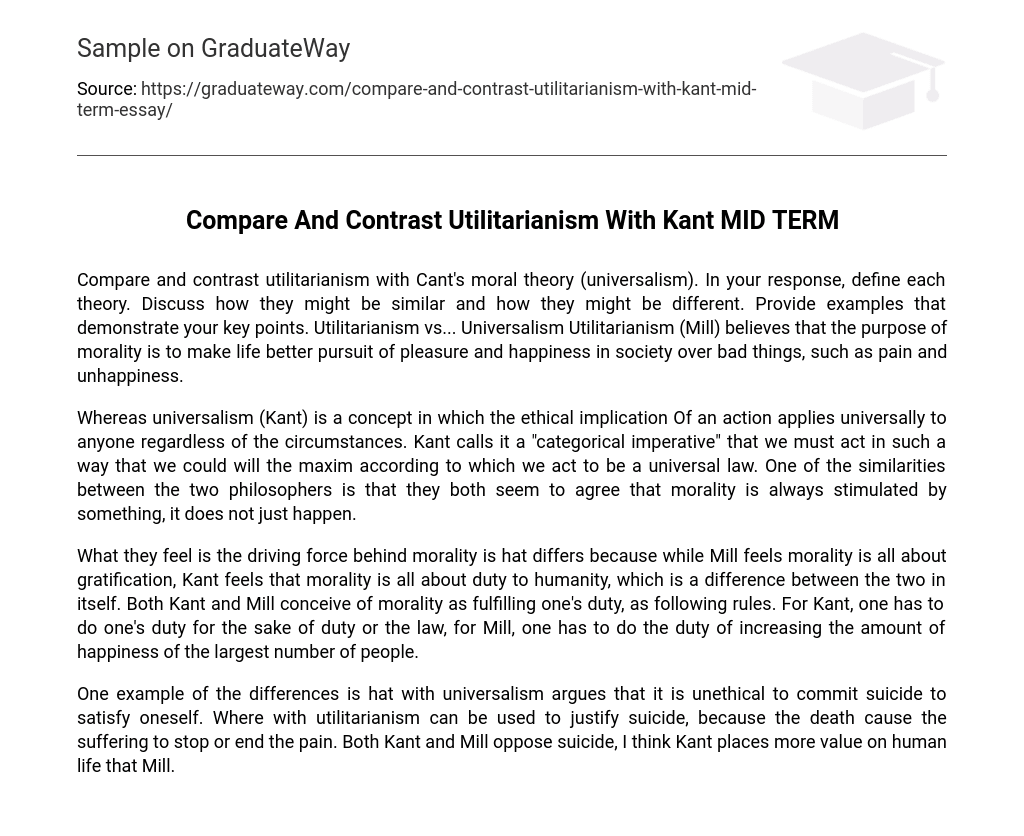Compare and contrast utilitarianism with Cant’s moral theory (universalism). In your response, define each theory. Discuss how they might be similar and how they might be different. Provide examples that demonstrate your key points. Utilitarianism vs… Universalism Utilitarianism (Mill) believes that the purpose of morality is to make life better pursuit of pleasure and happiness in society over bad things, such as pain and unhappiness.
Whereas universalism (Kant) is a concept in which the ethical implication Of an action applies universally to anyone regardless of the circumstances. Kant calls it a “categorical imperative” that we must act in such a way that we could will the maxim according to which we act to be a universal law. One of the similarities between the two philosophers is that they both seem to agree that morality is always stimulated by something, it does not just happen.
What they feel is the driving force behind morality is hat differs because while Mill feels morality is all about gratification, Kant feels that morality is all about duty to humanity, which is a difference between the two in itself. Both Kant and Mill conceive of morality as fulfilling one’s duty, as following rules. For Kant, one has to do one’s duty for the sake of duty or the law, for Mill, one has to do the duty of increasing the amount of happiness of the largest number of people.
One example of the differences is hat with universalism argues that it is unethical to commit suicide to satisfy oneself. Where with utilitarianism can be used to justify suicide, because the death cause the suffering to stop or end the pain. Both Kant and Mill oppose suicide, I think Kant places more value on human life that Mill.





